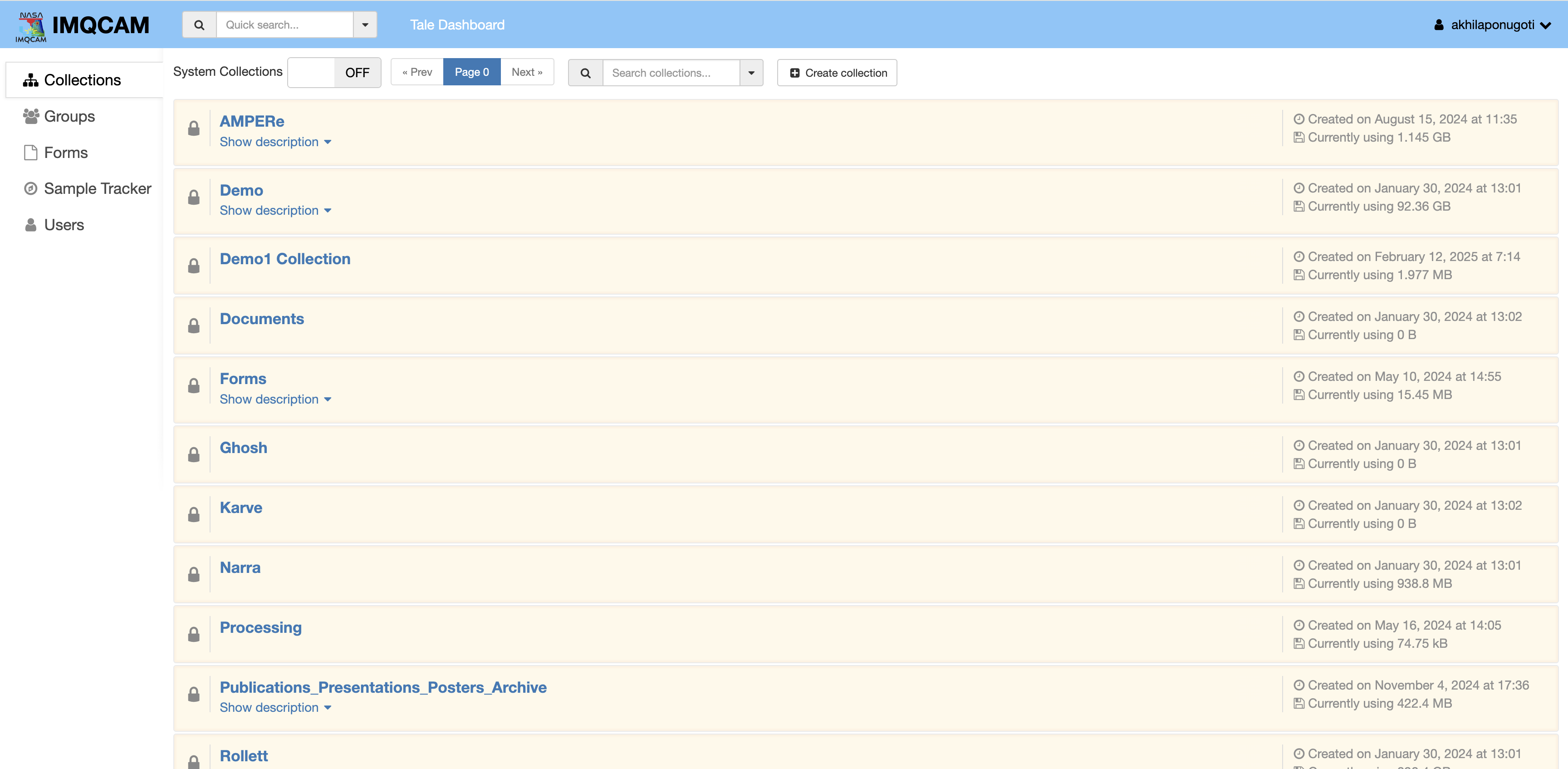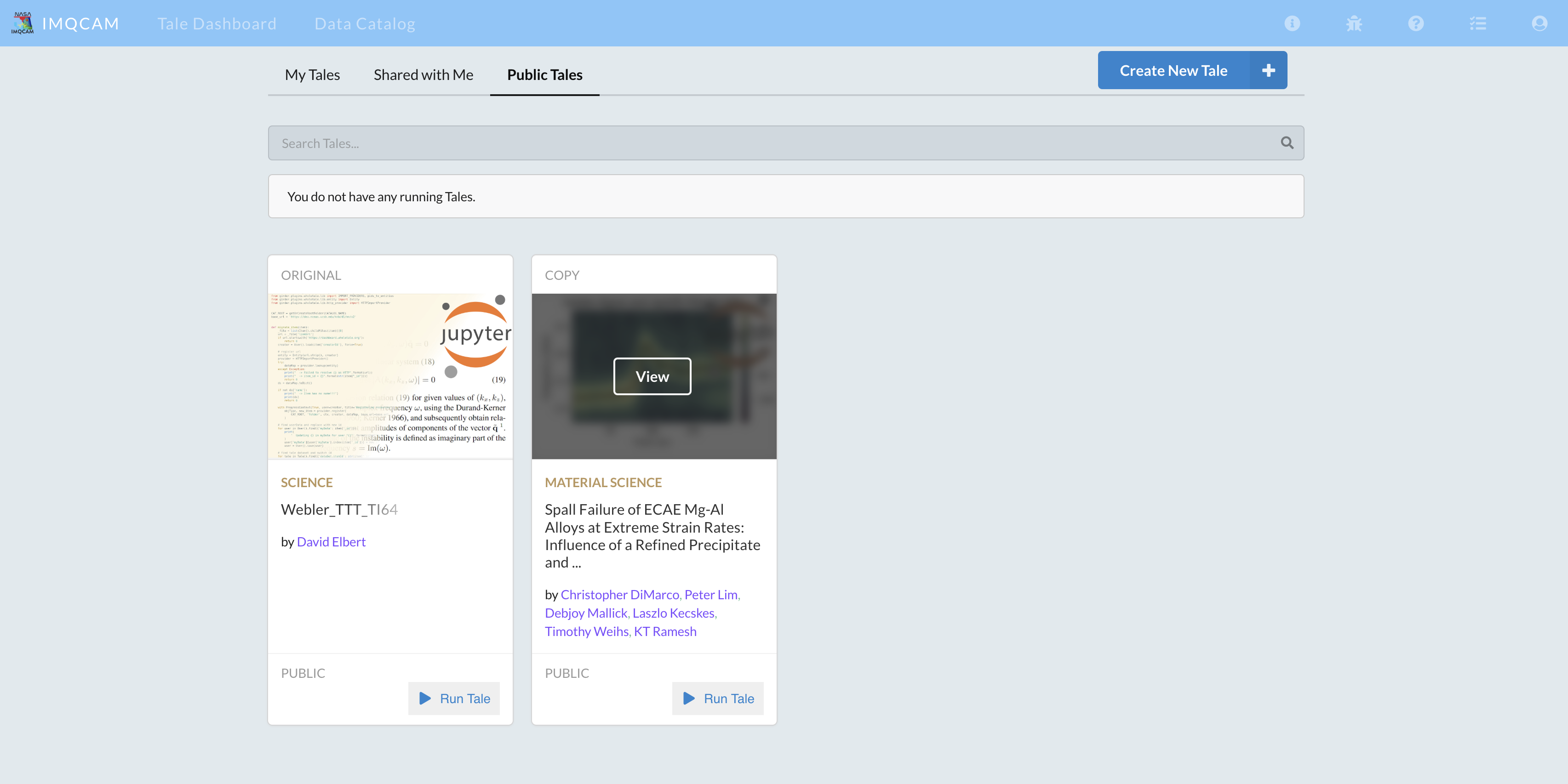Overview#
Materials researchers need collaborative tools for data curation. Too often, acquired data and other research artifacts are stored on local systems for analysis or shared using common cloud-based file management tools that are ill-suited for research artifact curation.
The IMQCAM digital twin environment provides a centralized portal for the management of data and software artifacts for materials researchers. It consists of the following:
Data Catalog: a scalable web-based portal for the curation, sharing, and preservation of research artifacts.
Analysis Dashboard: a web-based service for the creation, sharing, and publishing of transparent and reproducible analyses.
Data Catalog#
The Data Catalog (https://data.imqcam.org/) is a scalable web-based portal that allows researchers to transfer, organize, annotate, and share research artifacts with others.

Fig. 1 IMQCAM Data Catalog#
Key features include:
Web-based user interface that supports basic data management functions (upload, create/rename/delete, access control, metadata/annotation)
Authentication using your institutional credentials
Complete REST-based API (https://data.imqcam.org/api/v1)
Python toolkit and command-line utilities
Analysis Dashboard#
The Analysis Dashboard (https://dashboard.imqcam.org/) enables users to create and share analysis environments (called tales) based on popular tools including Jupyter and MATLAB.

Fig. 2 IMQCAM Analysis Dashboard#
Key features include:
Web-based user interface that supports the creation and sharing of custom computational environments using Docker
Interactive access to data in the IMQCAM Data Catalog
Reproducible and transparent analysis
Publishing computational artifacts
Complete REST-based API
